04 part 2: Cross-Border Shipping to Key e-Commerce Markets - Canada, UK and Australia
John Walsh and Nick Agnetti discuss what is important to UK and Australia e-shoppers – Hidden fees, delivery speed choice, clear return policies and more!
Learn more about this topic:
- E-commerce in Oceania: what’s driving sales in New Zealand and Australia?
- Asendia Oceania’s Managing Director explains emerging trends in e-commerce
- Asendia usa: E-commerce and mail delivery to and from Oceania
- The UK E-commerce Shopper (infographic)
- UK e-Commerce Market Insights (infographic)
- Asendia USA: Destination United Kingdom
- Latest e-commerce trends in Europe | Geopost
Transcript
Welcome back to Outside the Box
with Asendia USA.
::This is Nick Agnetti and I'm John Walsh.
::We continue our previous conversation
about the top three global e-commerce
::markets for U.S. shippers to target.
::Okay, let's pivot... UK.
::So UK is, you know, our second largest
what we as a organization
::in terms of our exports.
What are they on your notes there globally?
::Excuse me.
::I will take care of the notes. No problem.
::So what we've got here is an again, data
::December 2023, the most advanced
e-commerce market in Europe
::Revenue, which I love the name, is is being
remitted and reported to Her Majesty...
::Her Majesty's Revenue and Customs.
::It's the third largest e-commerce market in the world
underneath China in the United States.
::And the the output annually is
::estimated at $169 billion with a B.
::Well, yeah. Wow.
::And so what we're looking
so any of these markets
::that we mentioned today,
which is also interesting.
::So if you're a seller listening
::and you're thinking,
he just talked about, you know,
::my section, my sector business,
So top, I think it's six
::or seven areas of exports
or however you... imports, if you want to call it.
::We're looking at electronics, fashion,
::skincare, cosmetics, self-care,
hobby and leisure.
::Feel like those last two
are a little broad,
::but the first four are pretty specific.
::So, I mean, we see it
all the time, all day long.
::Apparel, skincare, all those guys and they're
all doing a good amount of business
::to, again, these more affluent,
::developed and really top ranking countries.
::And the UK has some stringent...
Yeah, they have specific rules.
::VAT rules because of everything
that happened with Brexit.
::Because they're not officially part
of the the EU member states.
::Right.
::And so they require any seller
that's selling into,
::you know, to Canad... not
Canadian, UK customers
::to register and remit, collect
taxes, collect
::VAT and then remit
those funds on a regular cadence.
::And that's but it's also self-monitored.
::So there's really no official policing
at this point that we're aware of.
::It's very interesting situation.
::And the VAT’s, you know, it's 20% VAT.
::Yeah.
But...
::Go ahead.
...the service to the UK is fantastic.
::It's fantastic.
::So to that point is, what we see
average four days?
::Four to five business days.
It's amazing. Door-to-door.
::Oh yeah, process to delivery.
Full tracking, visability,
100%.
::Yeah.
It's a beautiful thing
Some things I was looking at
::so our parent company Geopost
has a website, they have a barometer on there,
::an e-shop barometer. Like they...
That’s a great tool.
::They post what...
That’s cool.
...each individual countries habits are.
::So some things that came up that were
a little different with the UK.
::And I think it's more
because there's a lot of brownstones
::and their tight neighborhoods
and things like that,
::and the deliveries.
Free shipping was number one.
::Oh.
Number two was no hidden fees at checkout.
::They like to see the complete delivery who that's going to... how that's going to...
So the final mile carrier?
::Correct.
Okay.
::Choice and speed of delivery.
So they like a choice in the shopping cart of
::to your point because I think
these transits are so good.
::I think there's some options there
that are more... some are postal,
::some are commercial. Right? Sure.
::The fifth one was clear return policy,
which I thought was interesting.
::That is interesting.
::And it was a very
::when I looked at some other countries,
they were much higher
::in these five categories, which is,
::I wouldn’t say the word interesting.
::I thought it was
::to your point is they're different
than everybody else over there.
::They have a different look of way it is.
::But again, I...
::I don't see them as challenges,
::but I see them as opportunities
for most shippers in the US. Right.
::There you go.
Yep, yep.
Turn that frown upside down.
::So the other thing I want to add on to
that too, is what's different than,
::and again, we're talking today
about Canada, Australia, UK,
::so UK VAT rules
::or you know, duty and tax rules
when you talk about de minimis,
::again my Latin term that I mentioned earlier
as a as a true scholar,
::what what I'd like to highlight is that
there is no de minimis for the UK, right.
::It's not.
::So taxes apply on everything
starting from zero all the way up.
::Duties don't apply until you get
::up to 150 GBP and then at that point
you've got taxes and duties.
::Now we're not... there's no provincial differences.
::It's a straight, you know, 20% VAT tax
and typically a shipper would have
::and you talk about landed
costs and details and a better experience
::and such would have it broken down
at the time of
::when you're purchasing,
when you go to checkout,
::they would have the the merchandise,
the goods cost, they'd have it
::you know, what the taxes are.
Right?
::They'd collect that
at the time of checkout,
::then they'd have the shipping costs,
then you got your total cart.
::But UK really, I mean with Brexit
and everything they did there, that
::I mean it is simple, there's no de
minimis and again 150 GBP and over
::duty and tax.
Awesome, awesome.
Pretty easy.
::Let's talk about the last country
which is Australia.
::Last, but definitely not least right?
Yeah very large economy,
::very large buying power.
Have very high de minimis, right?
::Can order a lot of merchandise.
::Interesting enough
they love buying from the US.
::They really do.
Obviously probably because of their de minimis,
::but where they can buy a lot of product.
But you know they're very consistent...
::I did notice in some stuff from...
that I was reading, they're very big
::into health care, health and wellness items...
Yes.
...and apparel.
::Self care.
I don't think that's a surprise.
::Most companies, most countries
are in those two topics.
::But these, those two particular verticals,
they're big into.
::Is that what your experience has been?
::I know you have a couple large
customers like that.
::Skin care, fashion, self care, all those things
are huge for Australia. Yes.
::And, you know,
::let's go back and I seem to be just
spitting out facts this episode here.
::That's my job.
::But I don't use, you know, talking terms.
::I mean, just give you numbers.
Alright we’ll switch it up this time.
::Got on the Goog machine
before we get started and here we are.
::So 11th largest e-commerce
market in the world.
::GST rules that we will discuss
st,: ::So quite a while
it seems like like a lifetime ago.
::Right.
::But ultimately what it's saying that is
if you're an organization that's overseas
::or you're a US based seller selling into
or selling to Australian shoppers
::and you're selling over $75,000 AUD
worth of goods annually...
Right.
::you are required to register
for GST and collect
::the 10% GST at the time of sale and remit
those funds on a on a regular cadence.
::Now, what John was referring to
with the high de minimis
::is that there's a 1000 Australia
::Australian dollar de minimis
for duty threshold and so duties
::will not be assessed until you purchase
something over 1,000 AUD.
::So yeah, you'd have to buy quite a bit.
::Quite a bit.
Yeah.
::One thing... I was looking at something else
::I wanted your take on.
::They, apparently, I guess since the pandemic
their buying habits have changed, right?
::So they're more apt to buy
when there's a special.
::Okay.
::And they're more cost conscious
than they were before the pandemic,
::probably because they were
locked down for how many...
::they were locked down for a long time.
Yeah.
::But it's interesting that, ser...
the cost is more than service.
::but quite frankly, with our new...
our services have improved quite a bit.
::We're, you know, now we're inducting
in four ci... four particular cities
::in the in the UK.
::Our average transits are seven days now...
Australia.
Australia, I'm sorry.
::No, you're good.
I mean and it's full tracking.
::It's just it's been such
a better experience in what, the last
::seven, eight months
since we changed our strategy.
::Significant. It was...
Yeah.
::It was a little rough there for a while.
::I mean really, I mean they shut down...
we go back to
::not that I want to talk
about the pandemic,
::but the reality is this is that,
you know, Australia was very conservative
::with shutdowns and which led to
I mean, heck, the USPS pulled out for how long?
::Oh, months.
It was months that
::they just said, eh,
we're not shipping into Australia.
Yeah.
::And then on top of that,
::with significant air freight reductions
in terms of actual supply lanes of,
::you know, the ability to get material over
to Australia, it cut down the
::transit times were
::very high because we had delays
in parcel processing.
::But on top of that too,
::we were looking at
it was almost double, right?
::From what, if you look at 2019 to 2021,
probably double and now we're back down
::to getting close to what we had in 2019,
which is fantastic.
::Which, which, you know, if you look at it
from a domestic standpoint,
::if you've got 7 average domestically,
probably five years ago you were a star,
::you're doing seven day average.
::So a country that's half way around
the world, you’re getting seven business days.
::That's pretty impressive.
::So if that's something we can help
you all on the phone here... oh on the podcast here
::that's... it's a really good service, obviously,
to your point, it’s one of the largest
::lanes.
Absolutely.
::It's a real good opportunity
for a lot of companies to hop on that.
::Yeah, I agree.
::And I think just, you know, recapping
because we've been yapping for a while
::here, but we're going to recap.
::So today we focused on, you know,
the challenges,
::cross-border shipping to top
three e-commerce markets,
::and again, that's from the perspective
of a US-based logistics company,
::which is going to be in a direct-to-consumer,
which is going to be Canada, UK, and Australia.
::The... you know and so any, any questions
concerns that that you as a listener have,
::you know, add it to anything that you see
there. Send it into the the email address,
::the contact us, wherever you see this
add a comment and let us know.
::And also let us know if you if there's
anything that you want to hear about.
::We would love to get your
involvement as well.
::But John,
::is there anything else you want to recap
and kind of cap off of for today's talk?
::The only other thing I would ask
::the audience is if they want
any more Latin terms.
Oh, boy.
::And we can
::we can ask them if that's how they want
that presented and we'll go from there.
::Just one per episode.
That’d be...that’d be fine.
::Okay, I'll, I'll get on the Goog
and I'll figure it out. Okay?
::No no no. I’m just...I’m just joshing you.
::No, that was really good information today.
::All right.
::Thanks, everybody.
We'll talk to you next time.



